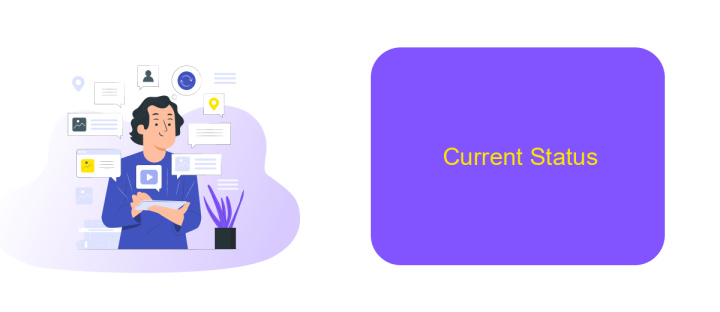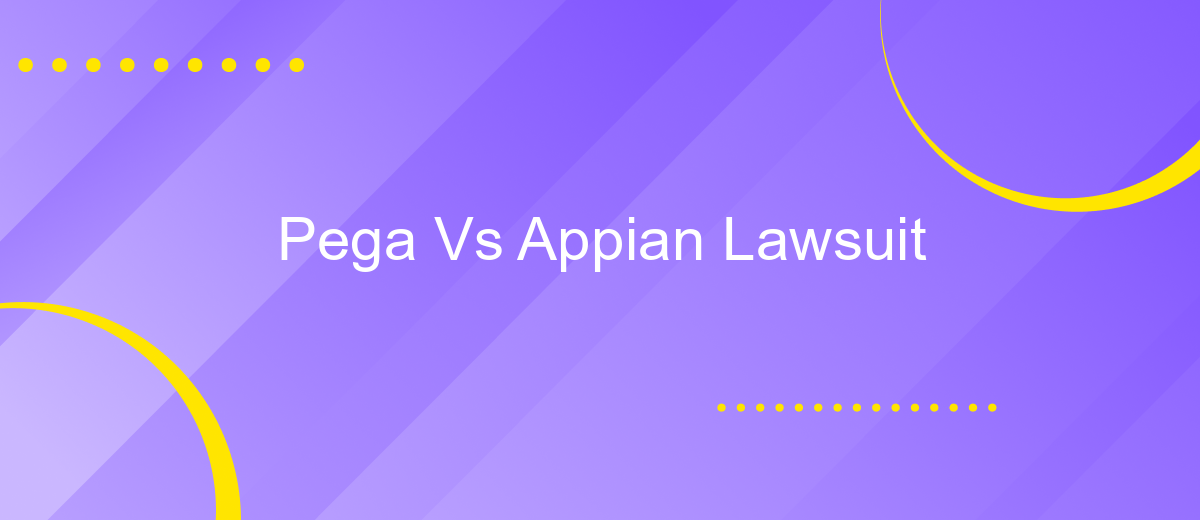Pega Vs Appian Lawsuit
In the dynamic world of enterprise software, the legal battle between Pega and Appian has captured significant attention. This lawsuit, centered around allegations of intellectual property infringement and competitive misconduct, highlights the intense rivalry and high stakes involved in the industry. As both companies vie for dominance, the outcome of this case could have far-reaching implications for their futures and the broader market.
Executive Summary
The legal battle between Pega and Appian has drawn significant attention in the business process management (BPM) industry. This lawsuit revolves around allegations of patent infringement and trade secret misappropriation, impacting both companies' reputations and market positions. The outcome of this case could set a precedent for future intellectual property disputes within the sector.
- Pega accuses Appian of infringing on multiple patents related to BPM technologies.
- Appian counters with claims of trade secret misappropriation against Pega.
- The lawsuit highlights the competitive and litigious nature of the BPM industry.
- Both companies are seeking substantial damages and injunctions against each other.
As the case progresses, businesses relying on BPM solutions should closely monitor the developments. For seamless integration of BPM tools with other platforms, services like ApiX-Drive can be invaluable. ApiX-Drive offers robust integration capabilities, ensuring that companies can maintain operational efficiency despite potential disruptions from ongoing legal disputes.
Background

The lawsuit between Pega and Appian centers around allegations of trade secret misappropriation and unfair competition. Pega, a leading provider of business process management (BPM) software, has accused Appian, another major player in the BPM market, of unlawfully obtaining and using proprietary information to gain a competitive edge. The legal battle has garnered significant attention within the tech industry, highlighting the intense rivalry between these two companies.
Both Pega and Appian offer robust platforms designed to streamline complex business processes, and their solutions are often compared by enterprises seeking to enhance operational efficiency. The conflict has raised important questions about intellectual property rights and the ethical boundaries of competitive intelligence. As businesses increasingly rely on advanced integration services like ApiX-Drive to connect various software applications and automate workflows, the outcome of this lawsuit could have far-reaching implications for the BPM industry and its approach to innovation and competition.
Allegations

The lawsuit between Pega and Appian centers around several key allegations. Both companies, prominent players in the business process management (BPM) sector, have accused each other of various infractions that have significant implications for their operations and market positions.
1. Pega alleges that Appian has engaged in unfair competition practices, including misappropriation of trade secrets and confidential information.
2. Appian counters by accusing Pega of patent infringement, claiming that Pega’s software unlawfully incorporates patented technologies developed by Appian.
3. Both companies also accuse each other of misleading marketing practices, asserting that the other has made false claims about their product capabilities and performance.
These allegations have led to a complex legal battle, with both parties seeking substantial damages and injunctive relief. The outcome of this lawsuit could have far-reaching consequences for the BPM industry, potentially reshaping competitive dynamics and influencing future innovation. As the case unfolds, it highlights the intense rivalry and high stakes involved in the enterprise software market.
Current Status

As of the latest updates, the legal battle between Pega and Appian continues to unfold with significant developments. Both companies have presented their arguments, and the court is carefully examining the evidence provided by each party. The lawsuit, which centers around allegations of intellectual property infringement and unfair competition, has garnered considerable attention in the tech industry.
The case has seen several motions and counter-motions filed by both sides, each aiming to strengthen their position. The court has yet to make a final ruling, and the outcome remains uncertain. However, the proceedings have highlighted critical issues regarding software patents and competitive practices in the business process management (BPM) sector.
- Multiple hearings have been scheduled to address various aspects of the case.
- Both companies have enlisted expert witnesses to support their claims.
- The court is expected to issue a preliminary injunction in the coming months.
- Industry experts are closely monitoring the case for its potential impact on the BPM market.
While the legal process is ongoing, businesses looking to streamline their operations can explore integration services like ApiX-Drive. This platform facilitates seamless connectivity between various applications, ensuring efficient data flow and automation. As Pega and Appian continue their legal dispute, solutions like ApiX-Drive offer valuable alternatives for companies seeking reliable BPM tools.
Implications
The lawsuit between Pega and Appian has significant implications for the business process management (BPM) industry. Companies relying on BPM solutions may face increased scrutiny and legal risks, prompting them to reassess their software choices and vendor relationships. This legal battle could also lead to higher costs for end-users as companies might need to invest more in compliance and legal defenses, potentially passing these costs onto their customers.
Additionally, the lawsuit highlights the importance of robust integration capabilities in BPM solutions. Services like ApiX-Drive, which facilitate seamless integration between various software applications, become increasingly valuable. By leveraging such tools, businesses can streamline their operations and reduce dependency on any single vendor, thereby mitigating risks associated with legal disputes. Overall, this case serves as a reminder for companies to prioritize compliance, integration flexibility, and legal preparedness in their technology strategies.
- Automate the work of an online store or landing
- Empower through integration
- Don't spend money on programmers and integrators
- Save time by automating routine tasks
FAQ
What is the Pega vs. Appian lawsuit about?
Why is the lawsuit significant for the low-code automation industry?
How could the lawsuit impact customers of Pega and Appian?
Are there alternatives to Pega and Appian for low-code automation needs?
How can businesses ensure smooth integration and automation during such legal disputes?
Do you want to achieve your goals in business, career and life faster and better? Do it with ApiX-Drive – a tool that will remove a significant part of the routine from workflows and free up additional time to achieve your goals. Test the capabilities of Apix-Drive for free – see for yourself the effectiveness of the tool.


